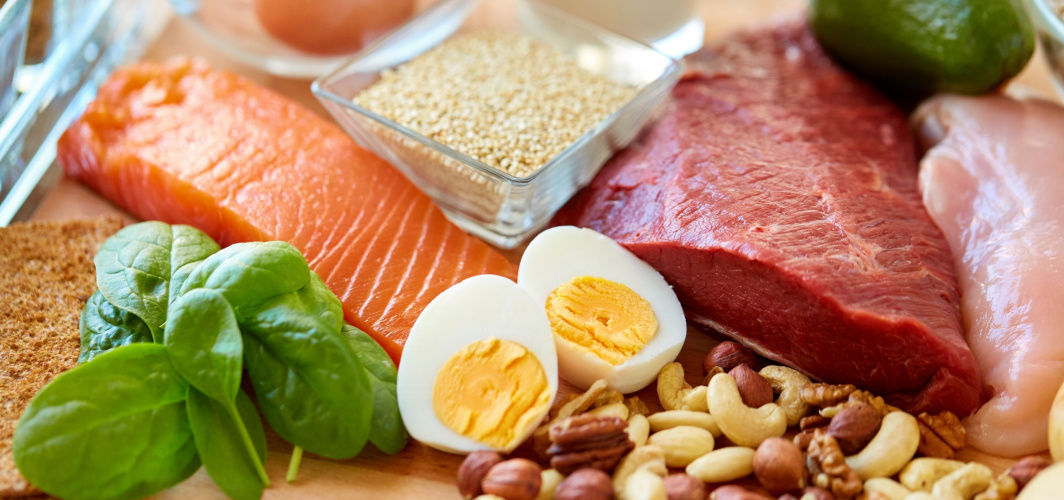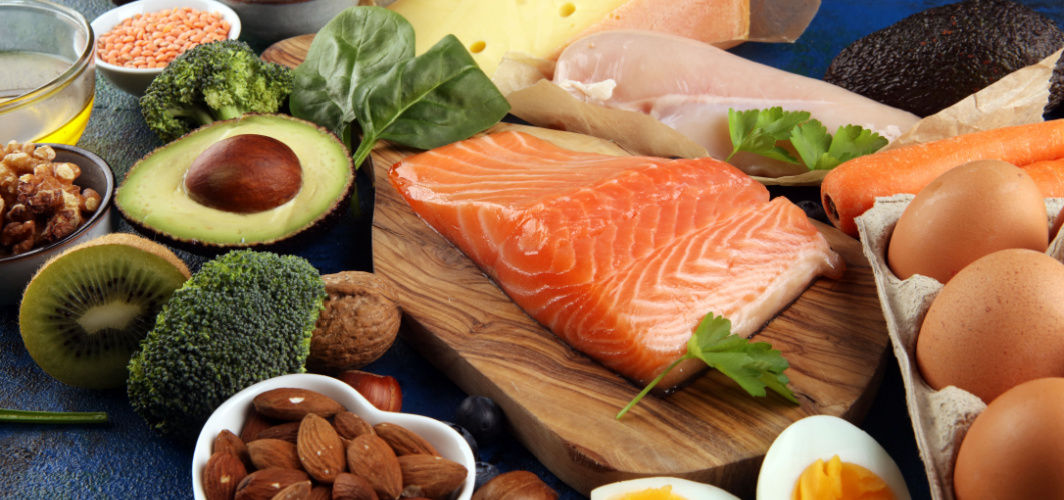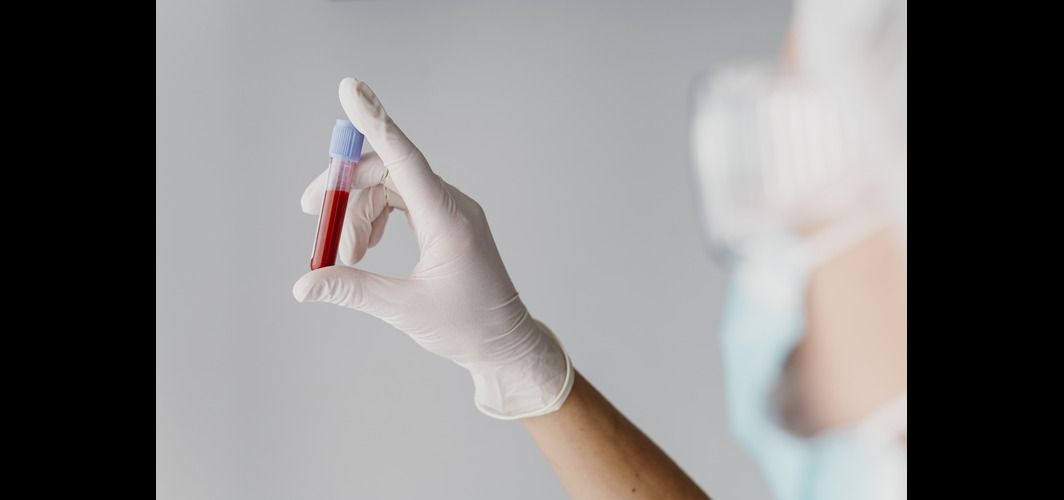General Health
12 Protein-Rich Foods For A Healthy Body
7 min read
By Apollo Pharmacy, Published on - 17 August 2023, Updated on - 07 August 2024
Share this article
0
0 like

Proteins are crucial, large molecules composed of amino acids that play a vital role in the body's daily functioning and growth. They contribute to bodily movements, strengthen the immune system, aid in hormone production, and facilitate various chemical reactions. Moreover, proteins are essential for cell development, muscle growth, and weight management.
However, the human body cannot produce the nine essential proteins on its own. Therefore, you need to include protein-rich food in your daily diet to lead a healthy lifestyle. To understand the need for protein in your body, how much is required in your daily diet, and recognise signs of protein deficiency, keep reading ahead.

Why Does Our Body Require Protein?
In simple words, proteins help your body to grow physically and also let your immune system strengthen itself. However, there are several functions of protein in the human body. Some essential functions of proteins are mentioned below.
1. Tissue Maintenance and Muscle Growth
Proteins are necessary for the growth and development of bones, muscles, and tissues in your body. These molecules promote healthy and fast repair of tissues as well. In addition, your hair, nails, and skin are made of protein.
2. Boosts Immunity
Another essential need for protein in your body is to boost your immunity. The human body protects itself from foreign invaders like bacteria and viruses with the help of antibodies present in your blood. These antibodies are produced in the body with the help of proteins.
3. Energy Source
The main sources of energy for your body are carbohydrates and fats. Yet, proteins can also serve as a valuable energy source. When there's a shortage of energy, proteins step in to provide the necessary fuel for regular functions. Additionally, protein aids in muscle recovery after workouts and physical activities.
4. Causes Biochemical Reactions
All the major activities in your body, like digestion, energy production, and muscle recovery, are a series of biochemical reactions. These chemical reactions are caused by combining different nutrients and molecules with the help of various enzymes produced by your organs. Proteins help to create these enzymes.
Top 12 Protein-rich Foods for a Healthy Body
Most food options that are a good source of protein are in the non-vegetarian category. However, there are several vegetarian sources of protein as well.
The 12 best protein-rich foods (both non-vegetarian and vegetarian) are mentioned below.
1. Whole Eggs
Eggs are a common part of daily diet globally. It is one of the best sources of protein and is also rich in calcium and other nutrients. Regularly including eggs in your diet ensures sufficient protein intake. The most common type of eggs consumed worldwide is chicken/hen eggs, followed by ducks.
Nutrient | Value |
Calories | |
Protein | 3 g |
2. Chicken/Turkey
Amongst poultry meat, turkey and chicken are the most popular all around the world. They are a ready source of protein along with iron and other essential nutrients. If you are a meat eater, incorporating a good piece of turkey or chicken in your diet would be beneficial. However, different parts of these meats have different protein content. Chicken breast and leg pieces are considered to have the highest protein content compared to other parts.
Protein Content as Per Piece (Per 100 g) | Value |
Chicken breast | 31 g |
Chicken leg | 24 g |
Turkey breast | 19.64 g |
Turkey leg | 27 g |
3. Paneer/Cottage Cheese
Paneer is a popular dairy product that is part of almost every Indian household. This food is sourced from cow milk and is globally known as cottage cheese. It is a popular veg protein-rich food. Another benefit of paneer lies in its lower content of other nutrients, making it an excellent choice to enhance your protein intake.
Nutrient | Value (Per 100 g) |
Calories | 265 Kcal |
Protein | 19 g |
4. Lentils and Pulses
Various types of lentils and pulses, such as masoor dal (red lentils) and rajma (kidney beans), boast significant protein content. These nutritious foods are also staples in Indian households. Lentils like rajma can also contribute to combating conditions like diabetes and heart diseases.
Lentil | Protein (Per 100 g) | Calories (Per 100 g) |
Rajma | 24 g | 127 Kcal |
Masoor Dal | 9 g | 166 Kcal |
5. Red Meat
Red meat refers to meat or meat products obtained from large animals like goats, buffaloes, and pigs. In the meat industry, it is also called mutton, beef/buff, and pork, respectively. These sources are one the highest known sources of protein.
Red Meat | Protein (Per 100 g) | Calories (Per 100 g) |
Mutton | 25 g | 199 Kcal |
Beef | 26 g | 250 Kcal |
Pork | 27 g | 242 Kcal |
6. Fish
Marine and freshwater fish are also rich sources of protein along with iron and omega 3. Including any fish in your diet is a good idea to ensure daily nutrient intake. Some popular fish are tuna, sardine, mackerel, bhetki (barramundi), rui (rohu), and more.
Nutrients | Value (Per 100 g) |
Protein | 22 g |
Calories | 206 Kcal |
7. Soya Chunks
They are a good source of protein and fibre. Adding a certain quantity of soya chunks to your daily diet can enhance your protein intake, while also adding delightful flavour to your food. These are also good protein-rich foods for pregnancy.
Nutrients | Value (Per 100 g) |
Protein | 52 g |
Calories | 345 Kcal |
8. Cauliflower
While many vegetables may not be high in protein, cauliflowers stand out as an exception, being rich in protein content and also serving as a valuable source of choline. This vegetable serves you a good quantity of protein along with vitamin K and necessary fibres.
Nutrients | Value (Per 100 g) |
Protein | 2 g |
Calories | 25 Kcal |
9. Fruits
Certain fruits like bananas, guavas, and avocados have high protein content. Therefore, you should consider including these fruits in your next fruit salad for good protein intake.
Fruits | Protein (Per Piece) | Calories (Per Piece) |
Banana | 1.3 g | 105 Kcal |
Avocado | 4 g | 240 Kcal |
Guava | 1.4 g | 38 Kcal |
10. Oats
Oats are very popular amongst people who are health conscious due to their numerous benefits. In addition, oats are a good source of protein and can be eaten in many forms. It is an ideal protein-rich food for weight loss.
Nutrients | Value (Per 81 g) |
Protein | 10.7 g |
Calories | 307 Kcal |
11. Prawns
Prawns, a well-liked seafood, offer ample protein along with a good amount of zinc, magnesium, and phosphorus. Adding a few prawns to your diet can contribute to a well-rounded nutrient intake.
Nutrients | Value (Per 81 g) |
Protein | 25 g |
Calories | 115 Kcal |
12. Peanuts
Peanuts are a rich source of protein, along with most other nuts. In addition, they are a good source of vitamin E. Having peanuts or peanut butter in your food can help you meet your daily protein requirements.
Nutrients | Value (Per 81 g) |
Protein | |
Calories |
How much Protein does our Body Require?
As it is established that protein is an essential part of a daily diet, it is also important to know the optimal quantity to consume daily. Therefore, as per global standards, the international recommended dietary allowance (RDA) for protein is 0.8 g of protein per kilogram of body weight, irrespective of age.
What are the Signs of Protein Deficiency?
Your body can tell you when protein is deficient in your body. If your body is showing one or more of the below symptoms, then you should consult your doctor to check your protein levels.
1. Skin, Hair and Nail Issues
Skin, hair, and nails are mostly made of protein. Hence, if you have a protein deficiency, it will easily show on these parts of your body. Weak nails, hair loss, and flaky skin are all signs of protein deficiency.
2. Fatty Liver
While fatty liver is a condition common to alcoholics and obese individuals, it is also a sign of protein deficiency.
3. Fatigue
Protein is essential for producing energy in the body. A deficiency can lead to fatigue and a constant feeling of tiredness due to the body’s inability to efficiently generate energy.
4. Weak Immunity
Staying sick for a long time, slow healing wounds, and easily catching illness are often signs of low protein in the body. It is because proteins help our immune system fight against such threats and build a memory for future attacks.
Conclusion
Proteins constitute among the most vital components within your body. Ensuring a daily intake of protein-rich foods holds significant importance. Deficiency in protein can result in serious health conditions, hence you should always keep a check on your protein intake. However, maintaining a well-rounded diet that encompasses essential nutrients is equally crucial for proper functioning. Therefore, you should carefully plan your diet to keep a balance of your nutrient intake.
You can also try protein supplements to fulfil the requirement.
FAQs
Q. Which vegetable has the highest protein content?
Green peas are considered the most protein-rich vegetable. One cup of green peas has approximately 8.6 g of protein.
Q. Which protein-rich food is the best for weight loss?
Soy protein is considered the most effective for weight loss as it has appropriate amino acids which promote weight loss. You can get soy protein from soya chunks and soy milk.
Q. Is eating too much protein bad for health?
Yes, consuming anything in excessive quantities causes harm to your health. Too much protein in your body can lead to kidney stones and several other ailments.
General Health
Leave Comment
Recommended for you

General Health
Your Loss Of Appetite Can Be A Sign Of Heat Stroke!
Exposure to extremely hot weather can result in a heat stroke. It can be life-threatening, therefore requires immediate treatment.

General Health
Top 9 Protein-Rich Foods For Muscle Building
Explore the ultimate list of protein-rich foods that fuel muscle growth and keep you full. Discover a balanced approach to fitness and satisfaction.

General Health
C-Reactive Protein (CRP) Test : What is the Normal Range , Procedure and Results
Discover the normal range for C-reactive protein (CRP) tests. Learn how to interpret your results and discuss any concerns with your doctor.
Subscribe
Sign up for our free Health Library Daily Newsletter
Get doctor-approved health tips, news, and more.
Visual Stories

The Best Exercises for Controlling Blood Sugar Levels
Tap to continue exploring
Recommended for you

General Health
Your Loss Of Appetite Can Be A Sign Of Heat Stroke!
Exposure to extremely hot weather can result in a heat stroke. It can be life-threatening, therefore requires immediate treatment.

General Health
Top 9 Protein-Rich Foods For Muscle Building
Explore the ultimate list of protein-rich foods that fuel muscle growth and keep you full. Discover a balanced approach to fitness and satisfaction.

General Health
C-Reactive Protein (CRP) Test : What is the Normal Range , Procedure and Results
Discover the normal range for C-reactive protein (CRP) tests. Learn how to interpret your results and discuss any concerns with your doctor.